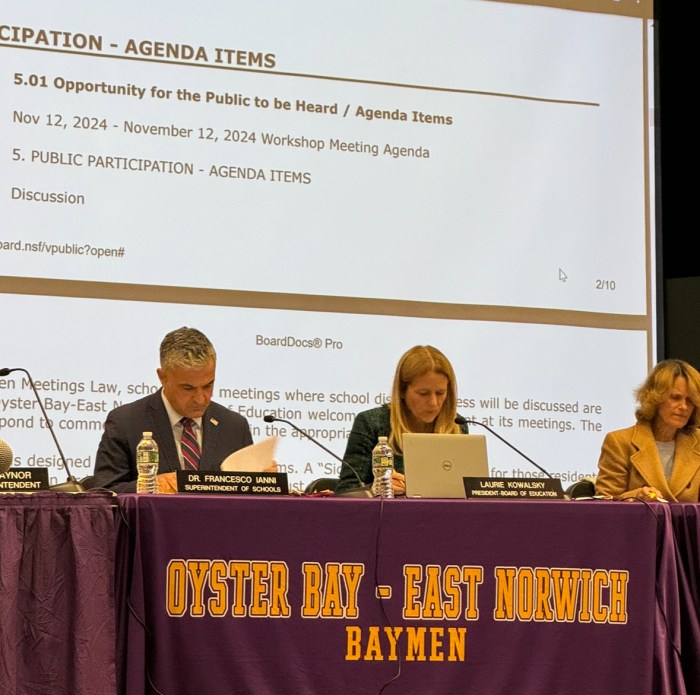 Since the beginning of higher education, the pressure has been on for a lot of students to get accepted to a prestigious college or university, to study and master a discipline such as law, finance or business administration. Truth is though; these topics of study and/or the traditional path of achieving a successful career are not for everyone.
Since the beginning of higher education, the pressure has been on for a lot of students to get accepted to a prestigious college or university, to study and master a discipline such as law, finance or business administration. Truth is though; these topics of study and/or the traditional path of achieving a successful career are not for everyone.
The author recently spoke with Erik Slagle at Lincoln Technical Institute (Lincoln) to find out more about their non-traditional, hands-on approach. Check out what he had to say here:
Q: Why is Lincoln a great alternative to traditional college?
A: Lincoln is a great alternative to a traditional four-year college because our programs are focused solely on career preparation for fields where our graduates can find opportunity and success. A four-year college education isn’t the right path for everyone, and many of today’s in-demand jobs don’t require a four-year degree.
Our programs can be completed in half the time it takes to earn a four-year degree (or less, depending on the program), meaning students can potentially graduate more quickly and with less debt. And unlike at many traditional colleges, students graduate with the support of a dedicated career placement team that works with each grad to help them land their first job in their new field.
In fact, the key metric for success at Lincoln isn’t just a graduation rate—it’s our placement rate.
Q: Who is Lincoln best-suited for?
A: Lincoln is best-suited for “hands-on” learners, and for people who have a real passion for hands-on fields like auto, diesel, skilled trades and healthcare support roles. Whether a student is just out of high school, or they’ve been in the working world for many years and are ready to make a change, if he or she wants to work with their hands they’ll find training for a career path at Lincoln.
Q: What’s new at Lincoln?
A: Over the past two years we’ve introduced and expanded a training partnership with Audi, continued our relationships with BMW, and added a renewable energy component to the electrical training program at our East Windsor, CT campus—all of which mean exciting new career opportunities for our students when they graduate.
We’ve also solidified agreements with industry leaders like Matco Tools, Yellow Jacket and others to continue ensuring our students are training on industry-standard equipment. We continue to forge new partnerships with employers who are seeking candidates with our graduates’ skills. Our Industry Training Partnerships division provides custom workforce training to our partners’ existing workforces.
Q: What advantage do students have by attending Lincoln?
A: Students who attend Lincoln graduate with the advantage of working with a Career Services department that is connected to some of the nation’s most renowned and respected employers. They also graduate with Lincoln’s 70-year history behind them—as one of the nation’s most established career training organizations, we know what skills hiring managers are looking for in new candidates and we base our curriculum around the hands-on training that builds those skills. Our graduates hold unique, industry-specific skill sets that will stay with them for life.
Q: What percentage of local, New York students, are eligible for scholarship and free assistance money?
A: All Lincoln students are encouraged to apply for our scholarships to determine eligibility; this year Lincoln campuses provide more than $15 million in scholarship funds for eligible students around the country. (A complete listing of scholarship opportunities can be found at www.lincolntech.edu/scholarships.)
Other forms of financial aid, including grants and student loans, are made available to qualified students on an individual basis. U.S. veterans are also eligible to apply benefits like the Post-9/11 GI Bill and Montgomery GI Bill towards their education.
Q: Are all students at Lincoln directly from high school tech schools? Or are older adults making career changes mid-life?
A: More than half of our students are recent (within the last one to three years) high school graduates, but a significant portion are adults who find themselves in need of new career skills either because of job loss, underemployment or dissatisfaction with their current job.
Q: What are the biggest administrative or curriculum challenges most Lincoln students face?
A: Students come from a variety of backgrounds and each brings his or her own set of unique challenges. For many students, they may be training for a better career while also holding down a part-time job and taking care of their family. Many are single parents (in fact, Lincoln also offers scholarships specifically for these students).
We actively partner with veterans’ organizations because we understand the challenges faced by the men and women of our military (and their families) when they are transitioning back into civilian life. We work with students one-on-one to provide as much support as possible and assist them in managing their challenges while they stay on the road to a new career.
For most, if not all, of our students, that new career is the key to knocking down their challenges and helping them begin new lives with brighter futures ahead.
Q: Locally, what is the job placement rate?
A: Complete details regarding placement rates can be found at our website; each campus has a full report available that’s been provided to our accrediting bodies. Placement rates vary by program, location and schedule. For example, our placement rates for Automotive Technology training in Queens, Diesel and Truck Technology training in East Windsor, Electrical and Renewable Energy Technology (East Windsor, evening schedule) and Welding Technology (also in East Windsor) are all 80 percent or better.
Visit www.lincolntech.edu to learn more.































